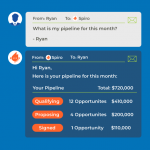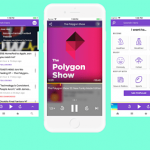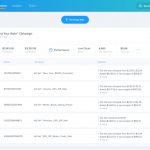AI Now Analyzes Inflections In Real-Time Voice Calls
AI Now Analyzes Inflections In Real-Time Voice Calls
by Laurie Sullivan @lauriesullivan, August 7, 2017
Invoca created technology to train custom predictive models that identifies the nuances of a voice call to a business. Allstate, Frontier Communications, and 3 Day Blinds are among the brands testing Invoca Signal AI in private beta.

The new technology allows brands to mine the data from these predictive algorithms. Signal AI analyzes in real-time the entire context of the conversation for language patterns and identifies customer intent and behavior as well as the outcome of the call.
The technology processes massive amounts of data in very short order. It gives marketers the ability to analyze offline phone conversations and optimize digital marketing campaigns, similar to the way it’s done for online as the transaction occurs.
Invoca CEO Gregg Johnson, who joined the company in October 2016, said the focus is on matching online activities with follow-up phone calls. For example, he recently booked a family trip and then called to confirm the last part of the reservation with an agent to make sure he got a good rate and that the room will be located in close proximity to a friend.
Connecting the online transaction with the phone call helps brands gain a better understanding of their customers and what drives the conversions.
“I also want to know if that consumer completed the transaction, because I don’t want them to go back online and retarget them for something they just purchased,” he said.
Voice calls have traditionally relied on the keywords in the conversation. Now the technology lets brands identify the exact triggers that drove the outcome of the calls. It is done by giving Invoca a sample of between 500 and 1,000 calls. Invoca creates an algorithm based on those calls that analyzes and mines each conversation looking for different patterns of keywords and inflections.
The technology uses machine learning and natural-language processing to identify patterns. Those calls become the basis for the predictive algorithm that analyzes each incoming call to see if it matches any of the previous patterns. The algorithms look for specific conversion events.
Johnson also said last year the company began leveraging IBM Watson for speech-to-text transcription.
MediaPost.com: Search Marketing Daily
(39)












